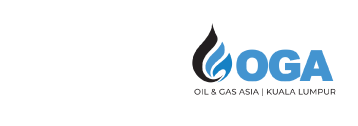Personality Profiling for Workplace Effectiveness: Understand Yourself, Understand Others
Duration: 2 DaysTime Schedule: 9:00am to 5:00pm
Introduction
This 2-day in-person program introduces participants to the power of personality profiling as a tool for self-awareness, interpersonal communication, and team collaboration. Participants will explore their personal style using a validated profiling model (e.g., DISC, MBTI, DOPE or Enneagram) and learn how personality differences influence workplace behaviour, leadership, stress response, and communication preferences. The course blends personal discovery with group activities to help teams understand and work better together.
Learning Outcomes / Benefits
By the end of this course, participants will be able to:
- Describe the components and purpose of personality profiling in the workplace
- Interpret their personal profile results and reflect on their strengths, challenges, and preferences
- Recognise and adapt to different personality types in communication and teamwork
- Apply profiling insights to improve leadership, collaboration, and motivation
- Demonstrate strategies for bridging personality gaps in team scenarios
Key Content
Module 1: Introduction to Personality Profiling
- Understand the rationale and benefits of profiling at work
- Overview of models (DISC, MBTI, DOPE, Enneagram)
- Nature vs nurture
- Validity and ethics of profiling
Module 2: Understanding Your Personality Profile
- Complete and interpret a profiling tool
- Analyse personal traits and behavioural tendencies
- Self-assessment
- Profile breakdown
Module 3: Personality in Communication
- Identify how different styles prefer to give/receive communication
- Adapt message delivery for better clarity and rapport
- Tone, pace, content focus
- Listening styles
Module 4: Working with Different Personality Types
- Recognise strengths and blind spots of other profiles
- Minimise conflict and misunderstanding
- Complementary vs clashing styles
- Flexing strategies
Module 5: Leadership and Motivation Styles by Type
- Explore how different profiles lead, decide, and respond to stress
- Adjust leadership approach for each style
- Feedback, stress response
- Recognition and task preference
Module 6: Team Dynamics and Application Planning
- Apply profiling insights to real workplace relationships
- Build an action plan for personal growth and team use
- Team profiling grid
- Culture-building with diversity
Target Audience
Team leaders, supervisors, middle managers, and functional heads responsible for managing team performance, cohesion, and workplace collaboration.
Methodology
- Self-Assessments (using DISC, MBTI, DOPE or Enneagram)
- Personal Reflection and Group Discussion
- Scenario Practice
- Team Mapping Exercises
- Action Planning Workshops







 US 11798
US 11798  BR 10711
BR 10711  VN 3353
VN 3353  CN 3329
CN 3329  TR 2354
TR 2354  SG 2185
SG 2185  AU 1793
AU 1793  CA 1757
CA 1757 







